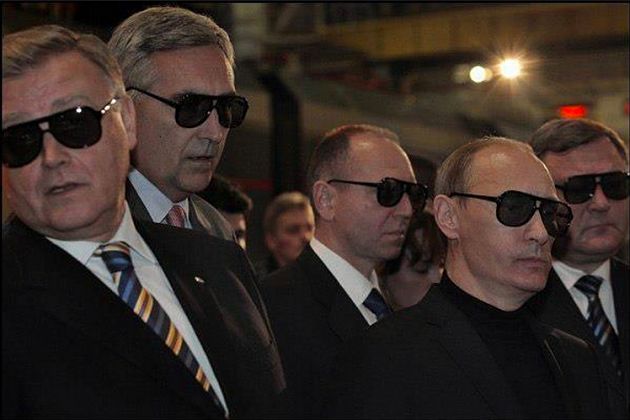Yesterday’s news about the death from coronavirus of the former head of Chuvashia, Mikhail Ignatyev, who recently became famous for appealing a court decision by Vladimir Putin to dismiss him, raised doubts among some about the real causes of his death, while leaving others completely unconvinced. It’s understandable, because Ignatyev’s dispute with Putin was something completely fantastic for today’s Russia, where the judicial system is completely under control and every former and current regional leader, as well as officials in general, have compromising material that can keep them hidden and out of trouble for a long time. Whether Ignatyev was killed deliberately, or whether they were simply not interested in saving him, or whether he acted in desperation because he felt his death was imminent, we do not know. But what is known is that in such a political system created by the current authorities, thoughts that any opponent of the regime will not die by his own hand, or fall victim to a provocation that will later be presented as an accident, arise not without reason and are fully justified.
Take, for example, another news story this week. Less than a year ago, Zelimkhan Hangoshvili, a Chechen who had previously reported threats against him from Russian special services and who had already survived an assassination attempt, was killed in Berlin (https://golosislama.com/news.php?id=37079). In principle, few doubted who organized this murder, but Kremlin propagandists, as always, rushed to dismiss it as a “criminal showdown,” and Putin himself said: “I don’t know what happened to him – it’s a criminal environment and anything can happen there.” And yet, yesterday, the Federal Prosecutor’s Office of Germany officially announced that it had long established, through investigations by a number of non-governmental organizations and special services, that the order to kill Hangoshvili had come from “structures subordinate to the Russian government”.
Although, in reality, it is a big question who is really subordinate to whom – whether these “structures” are subordinate to the “Russian government” or the other way around. Another news this week was the publication of a major report by the “Lubyanka Federation”, prepared by the “Dossier” Center, which had previously conducted a series of investigations into similar political assassinations, including the murder of journalists Orkhan Dzhemal and his colleagues in the Central African Republic, organized by the same forces. We invite our readers to familiarize themselves with this report (https://fsb.dossier.center/).
In addition to numerous facts about various units and individuals, the report contains general conclusions, including the following:
“Over the past 10 years, the FSB has gained control over almost all state institutions, mainly by violent means. The Ministry of Defense, the Investigative Committee, the Prosecutor General’s Office, the Ministry of Internal Affairs, and other structures have become dependent on the FSB. In addition, representatives of the intelligence services regularly influence the decisions of judges, violating the principle of the independence of the judiciary. Such a system creates an imbalance among government agencies and threatens national security. The methods used by the FSB often violate the constitutional rights of citizens and include the worst practices of the KGB era. FSB officers and their subordinates in other government agencies restrict freedom of speech, falsify criminal cases, engage in raids, resort to torture, and participate in the assassination of individuals deemed undesirable to the Kremlin, both in Russia and abroad;… The FSB functions as a repressive apparatus that acts against both opposition-minded citizens and those integrated into the power vertical, such as businessmen, officials, or the security forces, who are deemed undesirable to the Kremlin for various reasons, as well as certain high-ranking individuals or “clans”.
Thus, the report describes the transformation of the FSB from a state organization that was supposed to ensure social security into a semi-criminal structure that has assumed the role of a “second government” and intrudes into all spheres of social and state life.
In such a situation, it is perfectly justified for society to view the death of any figure not favored by the authorities as murder, no matter how much Kremlin trolls joke about the “bloody geba” and try to dismiss it as a product of the opposition’s inflamed imagination. And July 1 will not be about protecting “traditional values,” “historical memory,” or “state sovereignty,” but about further strengthening the positions of those who will continue to do what is described in this report under cover of it.

